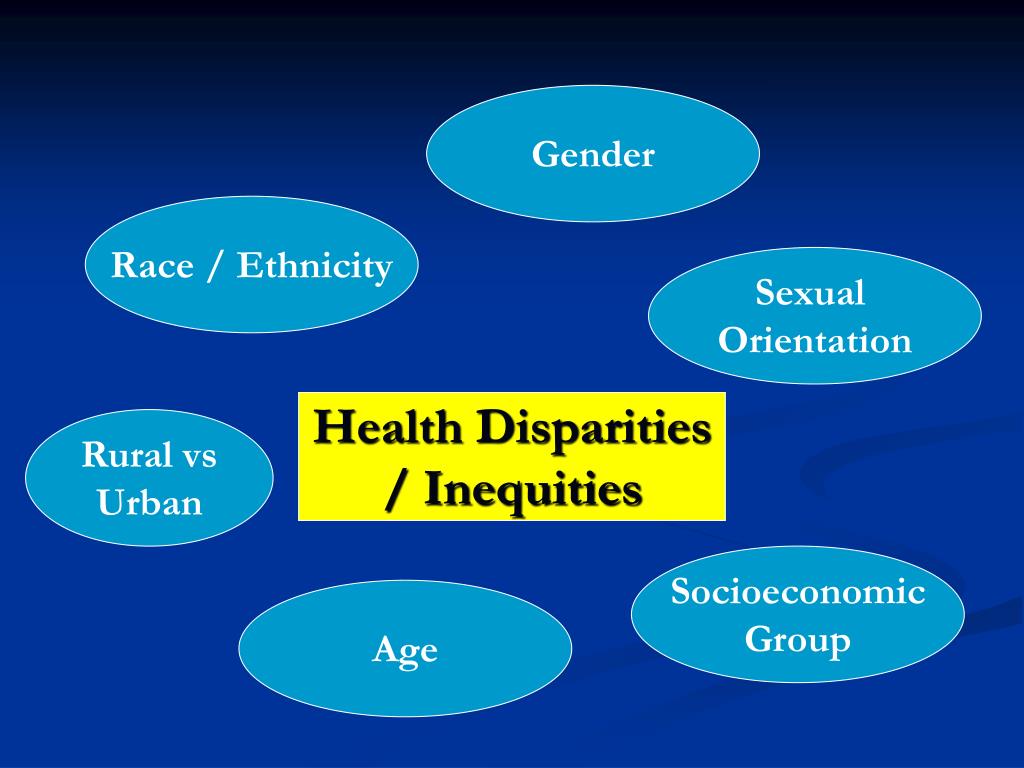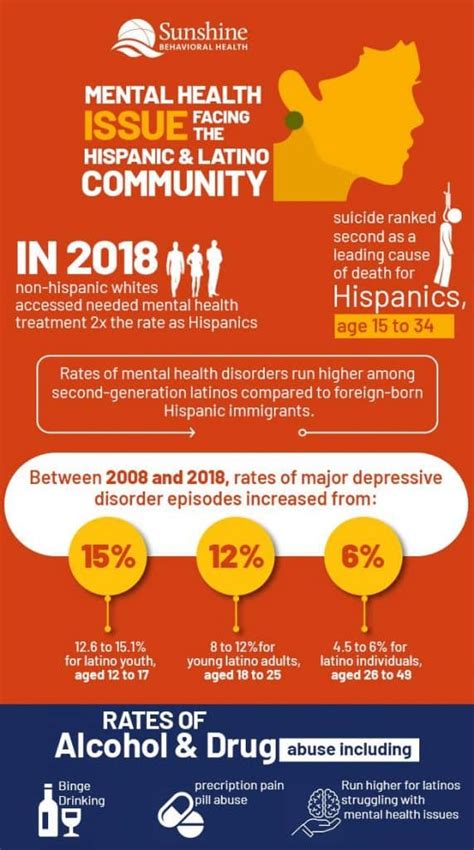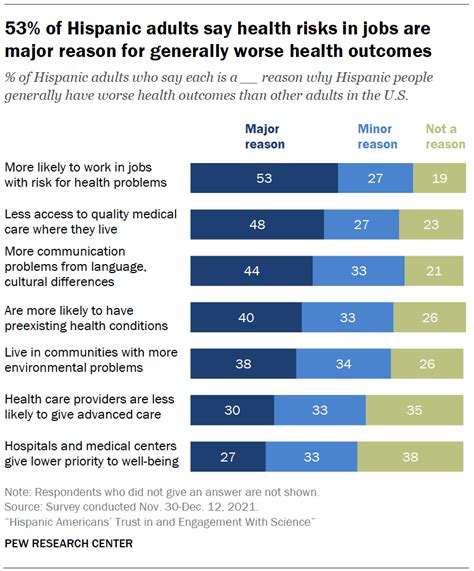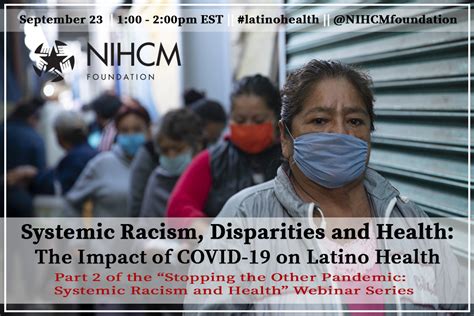The Latino community in the United States faces a myriad of health issues that are deeply intertwined with the pervasive problem of racism. These health disparities are not merely the result of individual choices or behaviors, but rather are shaped by systemic inequalities, discriminatory practices, and socioeconomic factors that have been perpetuated over centuries. As the Latino population continues to grow, understanding and addressing these health issues is crucial for promoting health equity and improving overall well-being.
Racism and Health Disparities in the Latino Community

Racism, in its various forms, contributes significantly to the health disparities experienced by the Latino community. Structural racism, which refers to the ways in which societal structures and institutions perpetuate racial inequalities, plays a critical role in shaping health outcomes. For example, residential segregation, which is a direct result of discriminatory housing practices, leads to Latino communities being disproportionately located in areas with poor environmental conditions, limited access to healthcare, and fewer opportunities for physical activity and healthy food options. These environmental factors contribute to higher rates of obesity, diabetes, and cardiovascular diseases among Latinos compared to their non-Latino white counterparts.
The Impact of Language Barriers and Cultural Competence
Language barriers and lack of cultural competence in healthcare settings also exacerbate health disparities in the Latino community. Latinos who have limited proficiency in English may face challenges in navigating the healthcare system, understanding health information, and adhering to treatment plans. Furthermore, healthcare providers who are not culturally competent may not fully understand the health beliefs, practices, and values of their Latino patients, leading to mistrust and poor health outcomes. A study by the National Committee for Quality Assurance found that patients who received care from providers who spoke their language had better health outcomes and were more likely to adhere to treatment recommendations.
| Health Issue | Prevalence in Latino Community | Comparison to Non-Latino White Community |
|---|---|---|
| Obesity | 42.5% | 36.2% |
| Diabetes | 17.9% | 10.3% |
| Cardiovascular Diseases | 32.1% | 28.4% |

Mental Health Concerns and Access to Care

Mental health is another critical area where the Latino community faces significant challenges. The stigma associated with mental illness, coupled with lack of access to culturally competent mental health services, contributes to underdiagnosis and undertreatment of mental health conditions. Latinos are less likely to seek mental health care due to concerns about confidentiality, fear of discrimination, and lack of Spanish-speaking providers. When they do seek care, they often face barriers such as long wait times, high costs, and inadequate insurance coverage. The National Institute of Mental Health reports that in 2020, only 34.1% of Latinos with a serious mental illness received treatment, compared to 45.1% of non-Latino whites.
Policy and Advocacy Efforts
Addressing the health issues in the Latino community requires comprehensive policy and advocacy efforts. This includes supporting legislation that promotes health equity, increasing funding for programs that target health disparities, and advocating for policies that address the social determinants of health. Furthermore, community-based initiatives that are led by and tailored to the needs of the Latino community are essential for promoting health awareness, providing culturally competent care, and fostering trust in the healthcare system. The Latino Health Advocacy coalition, for example, works to promote policy changes that address the unique health needs of the Latino community and to support community-based health initiatives.
Key Points
- Racism and discrimination are key drivers of health disparities in the Latino community.
- Language barriers and lack of cultural competence in healthcare settings exacerbate these disparities.
- Mental health concerns are significant, with underdiagnosis and undertreatment due to stigma, lack of access, and cultural barriers.
- Policy and advocacy efforts are crucial for promoting health equity and addressing the social determinants of health.
- Community-led initiatives and culturally competent care are essential for improving health outcomes in the Latino community.
In conclusion, the health issues faced by the Latino community are complex and multifaceted, rooted in systemic inequalities and discriminatory practices. Addressing these issues requires a comprehensive approach that includes policy changes, advocacy efforts, community-led initiatives, and a commitment to cultural competence and linguistic accessibility in healthcare. By working together to address these challenges, we can promote health equity, improve health outcomes, and ensure that the Latino community has access to the care and resources they need to thrive.
What are the primary health issues affecting the Latino community?
+The primary health issues affecting the Latino community include obesity, diabetes, cardiovascular diseases, and mental health concerns, which are often exacerbated by systemic racism, language barriers, and lack of cultural competence in healthcare.
How does racism contribute to health disparities in the Latino community?
+Racism contributes to health disparities in the Latino community through structural inequalities, discriminatory practices, and socioeconomic factors that limit access to healthcare, healthy environments, and economic opportunities.
What can be done to address the mental health concerns in the Latino community?
+To address the mental health concerns in the Latino community, it is essential to increase access to culturally competent mental health services, reduce stigma associated with mental illness, and support community-based initiatives that promote mental health awareness and provide linguistically accessible care.



